| Title | EEG-based communication and control: short-term role of feedback. |
| Publication Type | Journal Article |
| Year of Publication | 1998 |
| Authors | McFarland, DJ, McCane, LM, Wolpaw, J |
| Journal | IEEE transactions on rehabilitation engineering : a publication of the IEEE Engineering in Medicine and Biology Society |
| Volume | 6 |
| Pagination | 7–11 |
| Date Published | 03/1998 |
| ISSN | 1063-6528 |
| Keywords | Sensitivity and Specificity |
| Abstract | When people learn to control the amplitudes of certain electroencephalogram (EEG) components (e.g., the 8-12 Hz mu-rhythm over sensorimotor cortex) and use them to move a cursor to a target on a video screen, feedback about performance is normally provided by cursor movement and by trial outcome (i.e., success or failure). We assessed the short-term effects of this feedback on EEG control. After subjects received initial training with feedback present, feedback was removed intermittently for periods of several minutes. Subjects still displayed EEG control when feedback was removed. Removal of cursor movement alone appeared to have effects comparable to removal of both cursor movement and trial outcome. These results show that, in the short-term at least, mu-rhythm control is not dependent on the sensory input provided by cursor movement. They also suggest that feedback can have inhibitory as well as facilitory effects on EEG control, and that these effects vary across subjects. This finding has implications for the design of training procedures. |
| URL | http://www.ncbi.nlm.nih.gov/pubmed/9535518 |
| DOI | 10.1109/86.662615 |

